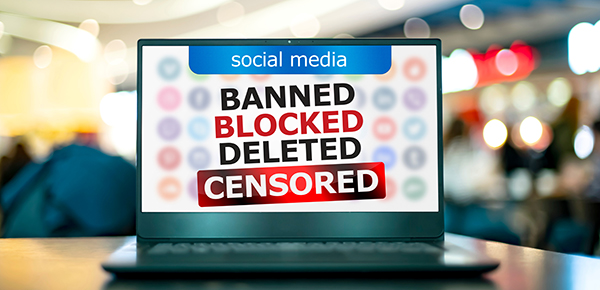
The survey conducted by the Pew Research Center from March 3 to April 4 found that majority of Israeli adults polled – 59 percent – are in favor of removing posts sympathetic to the Palestinians. It also found that at least half of Israeli adults are of the opinion that certain kinds of social media posts related to the ongoing conflict in the Gaza Strip should not be permitted. Such content to be censored include calls for violence (92 percent), support for Hamas (87 percent), graphic violence (72 percent) and criticism of the Israeli government's actions in the war (50 percent).
The Pew poll also found that Arab Israelis (28 percent) are more likely than Jewish Israelis (20 percent) to say they post or share about political or social issues at least sometimes. However, Jews (20 percent) are about twice as likely as Arabs (11 percent) to do so about the Israel-Palestine war specifically. About a quarter of Arab Israelis – 24 percent – say they never post or share content about the war, in contrast to only six percent of Jewish Israelis say the same.
An earlier poll by Pew Research taken in May showed that a majority of Israelis believe that the country's military was either taking the right response or it wasn't going far enough. Forty percent also said that Gaza should be left for Israel to govern.
Pro-Palestine protesters in the U.K. don't believe in censorship
Meanwhile, the Middle East Eye (MEE) said in a separate report that tens of thousands of protesters marched for Palestine in central London. The Sept. 7 demonstration was the 19th such demonstration since the start of the war last October, and the first held in the vicinity of the Israeli Embassy in London.
Iqbal Mohamed, a member of Parliament (MP) for the Dewsbury and Batley constituency, joined the march. The independent legislator who stood in a pro-Palestine platform was elected in July. Speaking to MEE, Mohamed said the U.K.'s decision to cut 30 out of 350 arms contracts with Israel and restore partial funding to the United Nations Relief and Works Agency for Palestine Refugees in the Near East was a "drop in the ocean."
"I was in the chamber when the government made its announcement, but it's only a drop in the ocean and we need to be doing more. [British Foreign Secretary David Lammy's] announcement showed that our own legal assessments demonstrate concern that there is a possibility that British arms may have been or likely used to harm innocent human beings."
The Sept. 7 march was organized by a coalition of organizations, including the Palestine Solidarity Campaign, Friends of Al Aqsa, the Muslim Association of Britain, the Stop the War Coalition and the Palestine Forum in Britain.
"I have back problems, but that is nothing compared to what Palestinians are going through right now in Gaza," said Zaina Beyad, a protester who has attended every Palestine march since the beginning of the war.
The protest, which ended on the edge of Hyde Park near the Israeli embassy, was met with metal barriers and dozens of police officers. According to MEE, observers of the protests are not believers of censorship – in any platform.
Visit Censorship.news for similar stories.
Watch Dan Bongino discussing the role of the media as gatekeepers, and whether censorship is the only way to hide the truth.
This video is from the Son of the Republic channel on Brighteon.com.
More related stories:
Former British diplomat: Benjamin Netanyahu is the enemy of peace in Israel.
U.S. State Department leading charge to abolish free speech globally.
Free speech concerns in the U.K. rise as communications regulator expands team to enforce online censorship laws.
Sermon 019: Mike Adams discusses why CENSORSHIP is SATANIC.
Israel rumored to be behind Telegram CEO Pavel Durov’s arrest.
Sources include:
MiddleEastEye.net 1
PewResearch.org
MiddleEastEye.net 2
Brighteon.com
Source link

